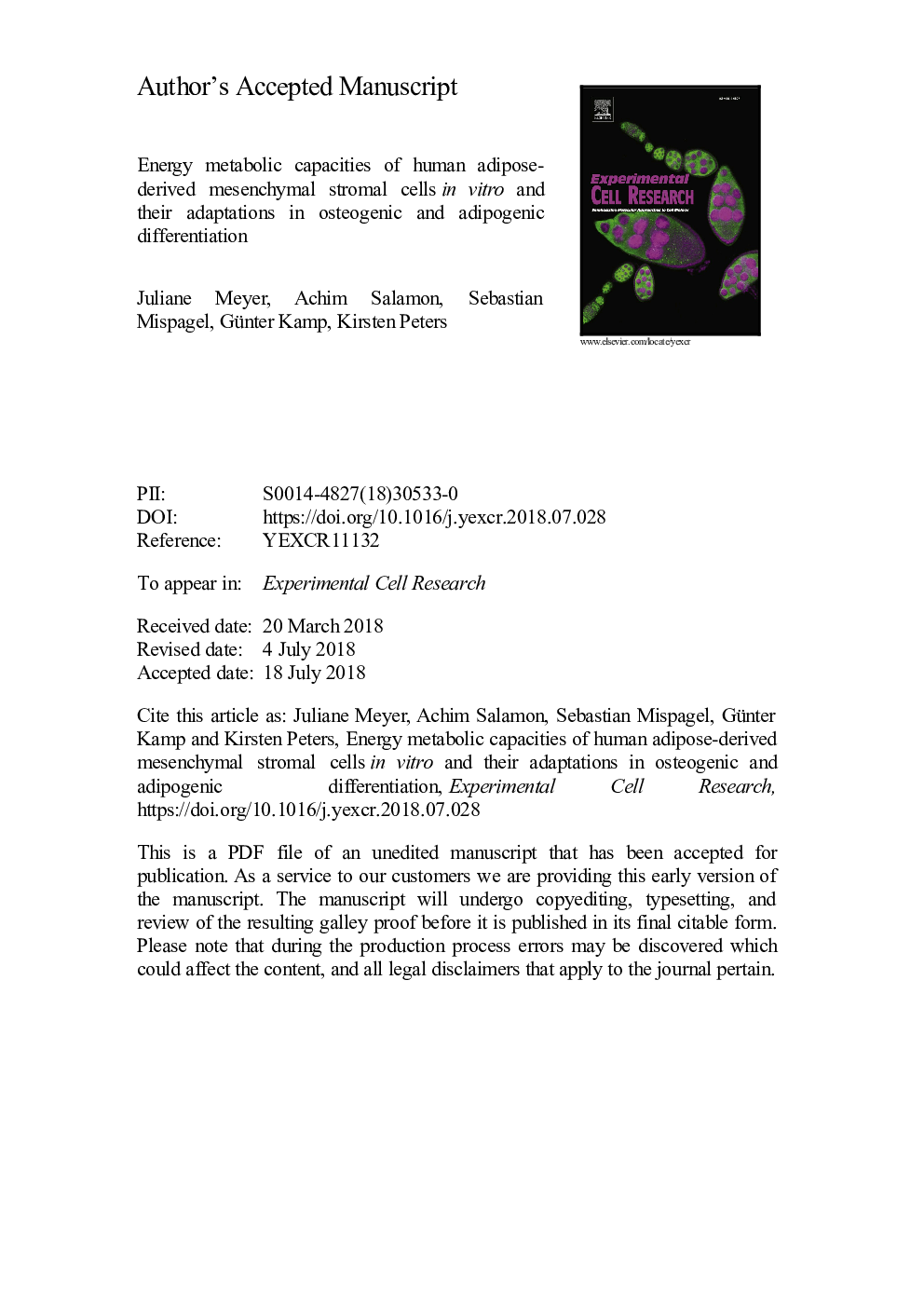| Article ID | Journal | Published Year | Pages | File Type |
|---|---|---|---|---|
| 8949749 | Experimental Cell Research | 2018 | 34 Pages |
Abstract
Mesenchymal stromal/stem cells (MSC) are important in tissue homeostasis and regeneration due to their ability for self-renewal and multipotent differentiation. Differentiation, as well as proliferation, requires adaptations in the cell metabolism. However, only few data exist concerning the energy metabolism of non-differentiating and differentiating MSC. In this study we compared capacities of major energy metabolic pathways of MSC from human adipose tissue (adMSC) in vitro in the non-differentiated state with those of osteogenically or adipogenically differentiating adMSC. To this end we quantified the proliferation and differentiation status of adMSC and analyzed maximum enzyme capacities and several enzyme isoforms of major energy metabolic pathways regarding their activity and gene expression. We could show that non-differentiating and osteogenic cultivation conditions induced proliferation and showed increasing capacities of the glycolytic marker enzyme phosphofructokinase as well as the marker enzyme of the pentose phosphate pathway glucose-6-phosphate dehydrogenase. Adipogenic stimulation, which was accompanied by the absence of proliferation, reduced the glycolytic capacity (e.g. decreased glyceraldehyde 3-phosphate dehydrogenase capacity) and induced an increase in mitochondrial enzyme capacities. These changes in energy metabolism might represent an adaptation of adMSC to the high energy demand during proliferation and to the specific cellular functions during osteogenic or adipogenic differentiation respectively.
Keywords
Related Topics
Life Sciences
Biochemistry, Genetics and Molecular Biology
Cancer Research
Authors
Juliane Meyer, Achim Salamon, Sebastian Mispagel, Günter Kamp, Kirsten Peters,
